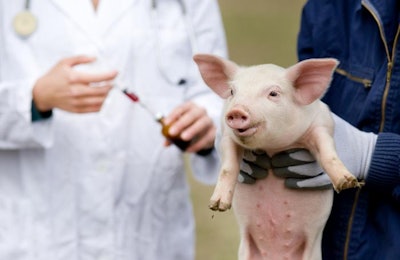
As of November 1, animal transport vehicles that have been in areas of Europe with a heightened alert for African swine fever virus will not be allowed to travel directly to pig farms in Denmark, according to the Danish Pig Research Center (SEGES).
Additional biosecurity measures will apply from that date as well. Vehicles will have to wait at least seven days before travelling on to Danish farms, during which time they will need to undergo thorough cleaning with detergent and disinfection at an approved location in Denmark.
African swine fever virus risk areas have been defined as Belarus, Estonia, Latvia, Lithuania, Ukraine, Russia (including Kaliningrad), Moldova and eastern parts of Poland. The Polish states included under the new precautions are Warmian-Masurian, Podlaskie, Masovian, Lublin, Swietokrzyskie, Lesser Poland and Subcarpathian.
These restrictions will remain in place for at least one year, when they will be reassessed.
Heightened state of alert for African swine fever in Europe
Reports highlighting an increase and spread of outbreaks of African swine fever in Central and Eastern Europe prompted the authorities in a number of European Union countries in August to remind the pig sector to be alert for signs of the disease and to tighten up on biosecurity.
Since that time, further outbreaks of the virus have been reported. Cherkizovo reported an African swine fever outbreak at a sow farm in the Lipetsk region of Russia. In late September, two outbreaks of African swine fever were confirmed in Moldova and reported to the World Organization for Animal Health (OIE).















